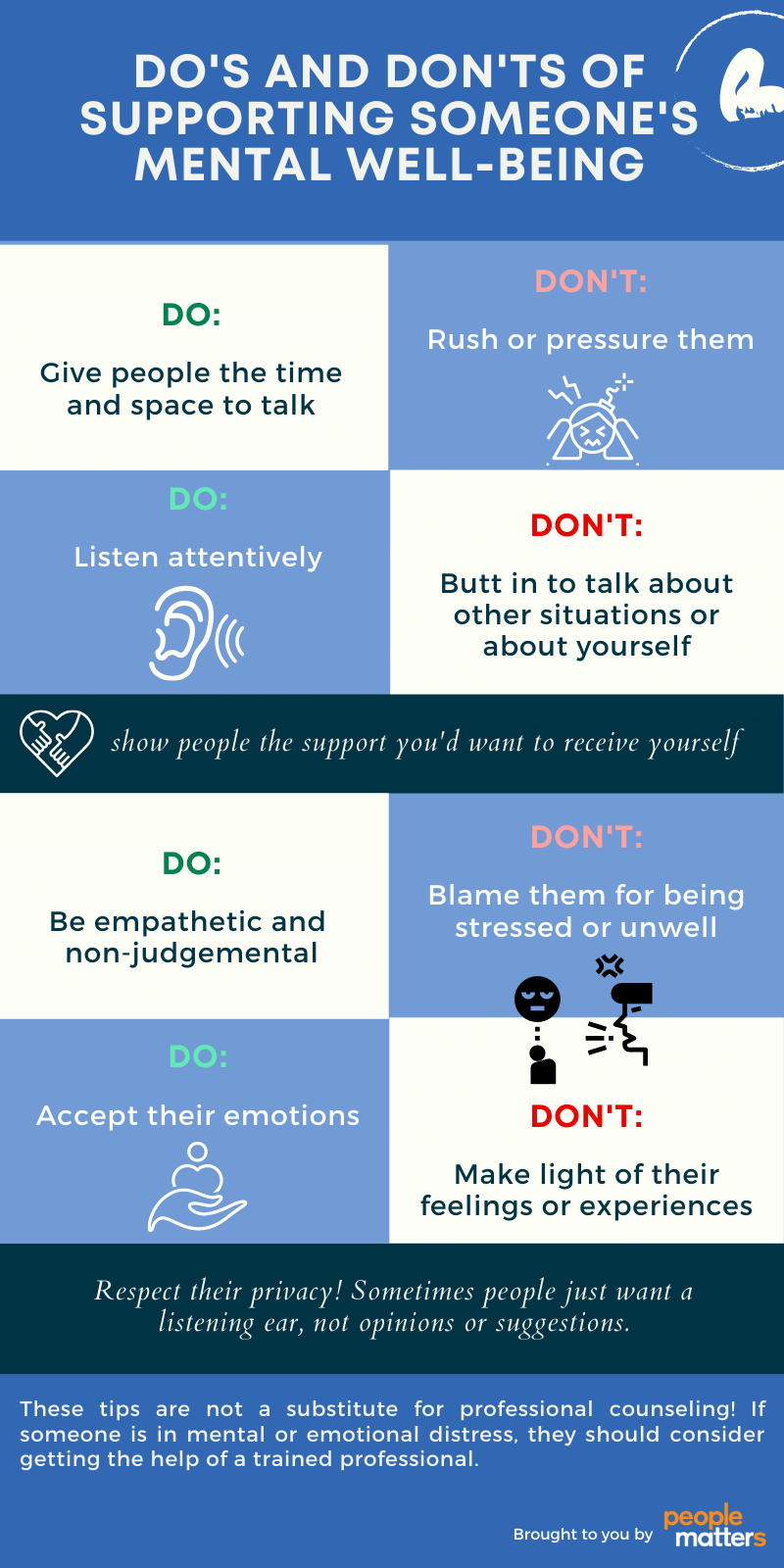Tips for providing mental well-being support

Do you know someone who is or has been stressed this year? Have you wished you could help in some way?
The intense stress and disruption of 2020 has brought mental well-being into the spotlight, with leaders openly acknowledging its importance and companies introducing a slew of initiatives attempting to address the mental and emotional well-being of the workforce.
But outside of workplace policies and programs, it's possible for each of us, as individuals, to provide a little basic concern that can help our family, friends, or co-workers over a stressful period.
Two key principles of mental and emotional support are active listening and accepting feelings.
Unless we are professionals, we cannot really provide counseling or therapy, but we can still offer a listening ear and a small sense of safety. Sometimes, all it takes is to casually ask: “Is something stressing you out?” or “Do you need a listening ear?”
In such situations, two principles are key: active listening and accepting the person's feelings. By encouraging them to talk out what is troubling them and showing empathy for their distress, we can be of more help than we realize. Of course, not everyone is cut out to provide this kind of support, and that is fine!
If you should one day find yourself in a position to offer mental or emotional support to a stressed person, here are some do's and don'ts that may help.

Finally, if your family member/friend/co-worker is in serious distress, encourage them to seek professional help. If needed, let them know that it's not a sign of weakness or failure any more than a physical illness or injury would be, and there need not be any embarrassment or fear around it.
Don't forget to take care of your own mental well-being too!
We may not be able to change the situation that we are in, but we can improve our own ability to handle it. Try to get enough sleep, to eat regularly and drink plenty of water, and if needed, don't be afraid to seek help for yourself.
These are some common indicators of stress:
-
- Physical symptoms including headaches, trouble breathing, accelerated heartbeat, or other forms of physical distress
- Emotional symptoms such as anxiety, being more easily irritated, distracted, or angered
- Behavioral symptoms such as changes in eating and sleeping habits, increasing use of caffeine or alcohol
- Mental symptoms such as difficulty concentrating or memory deficits
- Interpersonal symptoms such as changes in interactions with others or interpersonal relationships
Remember, you have to support yourself before you are able to support others!















